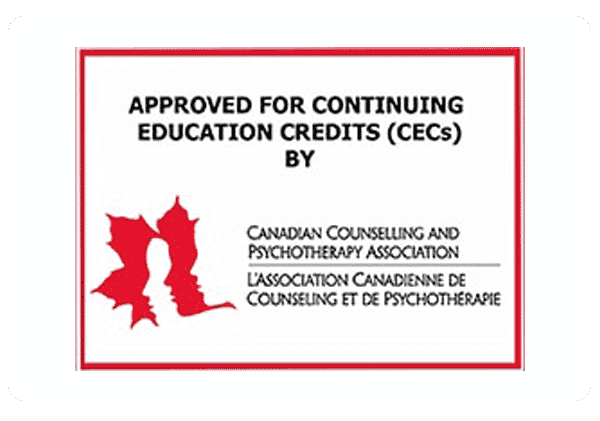Cognitive Therapy for Obsessions: How to Navigate the Pitfalls – Dr David Clark
Compared to many of the anxiety disorders, obsessive compulsive disorder (OCD) has a lower lifetime prevalence. Yet, it accounts for a greater share of the mental health burden because of its symptom heterogeneity, chronic course, high comorbidity, and severe impact on quality of life. Cognitive behavior therapy (CBT) that includes exposure-based interventions is highly effective, although only 25% of treatment completers achieve symptom-free status. Moreover, our evidence-based psychological treatments are more successful in treating compulsions than obsessions. Often obsessive thinking remains intact even after a significant reduction in compulsive rituals. Also, individuals who experience obsessions without overt compulsive rituals tend to show poorer response to conventional exposure-response prevention treatments for OCD. Thus obsessive thinking continues to be one of the most difficult problems to treat with current psychological interventions. Read More
This webinar explores the problems inherent in psychological treatment of obsessions. It begins by exploring the common and specific characteristics of obsessions, how they are distinct from negative repetitive thought like worry and rumination, their heterogeneity, and the psychological processes responsible for their remarkable resilience in the face of overwhelming disconfirming evidence. Several difficulties inherent in the treatment of obsessions are identified and we discuss why clinicians so often fall into these traps when treating obsessive thinking. The cognitive appraisal model of obsessions is presented, and key tenets of the model are highlighted. This is followed by instruction on how to assess obsessions and develop an individualized cognitive case formulation of obsessive thinking. Step-by-step instruction is provided in how to use core cognitive interventions to effect change in obsessive thinking. The webinar returns to the various pitfalls involved in treating obsessions and how to circumvent these problems with a cognitive case formulation and treatment. Throughout case examples and illustrations are provided, and participants are invited to share their observations and experiences in treating obsessions.
TRAINING information
Compared to many of the anxiety disorders, obsessive compulsive disorder (OCD) has a lower lifetime prevalence. Yet, it accounts for a greater share of the mental health burden because of its symptom heterogeneity, chronic course, high comorbidity, and severe impact on quality of life. Cognitive behavior therapy (CBT) that includes exposure-based interventions is highly effective, although only 25% of treatment completers achieve symptom-free status. Moreover, our evidence-based psychological treatments are more successful in treating compulsions than obsessions. Often obsessive thinking remains intact even after a significant reduction in compulsive rituals. Also, individuals who experience obsessions without overt compulsive rituals tend to show poorer response to conventional exposure-response prevention treatments for OCD. Thus obsessive thinking continues to be one of the most difficult problems to treat with current psychological interventions. Read More
This webinar explores the problems inherent in psychological treatment of obsessions. It begins by exploring the common and specific characteristics of obsessions, how they are distinct from negative repetitive thought like worry and rumination, their heterogeneity, and the psychological processes responsible for their remarkable resilience in the face of overwhelming disconfirming evidence. Several difficulties inherent in the treatment of obsessions are identified and we discuss why clinicians so often fall into these traps when treating obsessive thinking. The cognitive appraisal model of obsessions is presented, and key tenets of the model are highlighted. This is followed by instruction on how to assess obsessions and develop an individualized cognitive case formulation of obsessive thinking. Step-by-step instruction is provided in how to use core cognitive interventions to effect change in obsessive thinking. The webinar returns to the various pitfalls involved in treating obsessions and how to circumvent these problems with a cognitive case formulation and treatment. Throughout case examples and illustrations are provided, and participants are invited to share their observations and experiences in treating obsessions.
Learning Objectives
Participants can be expected:
- To identify obsessions as distinct from other forms of problematic repetitive thought like worry, rumination, delusions, and overvalued ideation.
- To gain a basic understanding of the phenomenology of obsessions.
- To understand the common pitfalls that undermine effective treatment of obsessions.
- To have a basic understanding of the cognitive appraisal model of obsessions.
- To conduct an idiographic assessment and individualized cognitive case formulation of obsessive thinking.
- To acquire rudimentary skills in utilizing cognitive and empirical hypothesis-testing interventions for faulty beliefs and appraisals related to obsessions.
- To learn strategies and a therapeutic style that circumvents the most common difficulties encountered in the treatment of obsessions.
About the Speaker
 David A. Clark, PhD, is Professor Emeritus, Department of Psychology, University of New Brunswick, Canada and a practicing clinical psychologist with 30+ years in providing cognitive behavioural treatment for OCD. He received his PhD from the Institute of Psychiatry is a Fellow of the Canadian Psychological Association, Founding Fellow/Trainer Consultant of the Academy of Cognitive Therapy, and ad hoc consultant with the Beck Institute. He was a founding member of the Obsessive Compulsive Cognitions Working Group, and recipient of the Aaron T. Beck Award in 2008. Dr. Clark has conducted training workshops on CBT of OCD and anxiety disorders globally including Hong Kong, China, Australia, Europe, Britain, Turkey, and the United States to name but a few. He has co-authored several publications with Dr. Beck including Cognitive Therapy for Anxiety Disorders (Guilford, 2010), and The Anxiety and Worry Workbook (Guilford, 2012). He is sole author of The Mood Repair Toolkit (Guilford, 2014), The Anxious Thoughts Workbook (2018, New Harbinger), and The Negative Thoughts Workbook (2020, New Harbinger). His most recent OCD publication is Cognitive-Behavioral Therapy for OCD and Its Subtypes (2020, Guilford). A second edition of The Anxiety and Worry Workbook is also now available.
David A. Clark, PhD, is Professor Emeritus, Department of Psychology, University of New Brunswick, Canada and a practicing clinical psychologist with 30+ years in providing cognitive behavioural treatment for OCD. He received his PhD from the Institute of Psychiatry is a Fellow of the Canadian Psychological Association, Founding Fellow/Trainer Consultant of the Academy of Cognitive Therapy, and ad hoc consultant with the Beck Institute. He was a founding member of the Obsessive Compulsive Cognitions Working Group, and recipient of the Aaron T. Beck Award in 2008. Dr. Clark has conducted training workshops on CBT of OCD and anxiety disorders globally including Hong Kong, China, Australia, Europe, Britain, Turkey, and the United States to name but a few. He has co-authored several publications with Dr. Beck including Cognitive Therapy for Anxiety Disorders (Guilford, 2010), and The Anxiety and Worry Workbook (Guilford, 2012). He is sole author of The Mood Repair Toolkit (Guilford, 2014), The Anxious Thoughts Workbook (2018, New Harbinger), and The Negative Thoughts Workbook (2020, New Harbinger). His most recent OCD publication is Cognitive-Behavioral Therapy for OCD and Its Subtypes (2020, Guilford). A second edition of The Anxiety and Worry Workbook is also now available.
CPD/CE
CPD / CE / NBCC credits available: 3
How do I receive these credits? The participant must pass the multiple-choice test with a minimum score of 80%. There is a maximum of three attempts to achieve this. The post-test is included in the price of the training.
Does my regulatory body accept the credits? The CPD & CE credits awarded can be used towards your declaration to any governing regulatory body in your state or country, provided the content is relevant to your discipline. Our trainings are accredited by: – The CPD Group, London – Canadian Counselling and Psychotherapy Association – Australian Counselling Association – National Board of Certified Counselors (NBCC)






